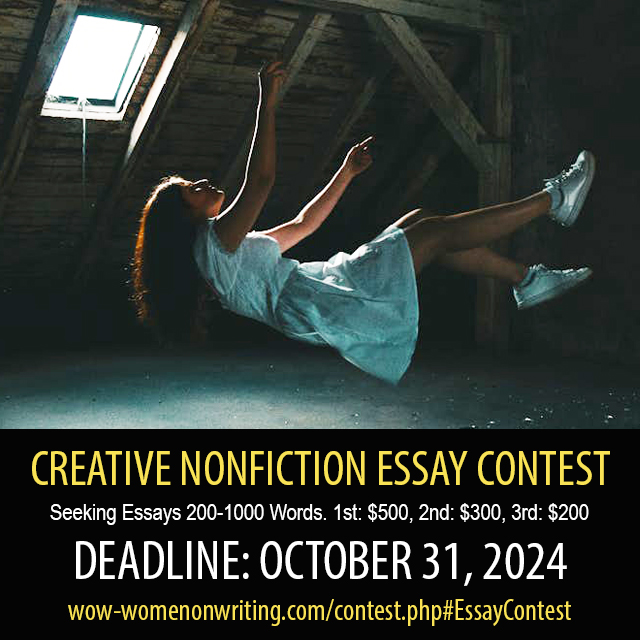Boo! Happy Halloween!
Do you worry that you need to scare your readers every so often just to keep them awake?
Don't do that. Here are 5 ways to keep them turning the pages--without the scare:
Cliffhangers. Traditionally, authors keep readers turning pages by a skillful use of chapter breaks. If the Main Character--let's call him Herman--is left hanging by his fingers over the edge of a great ravine, readers worry. They turn the page to find out what happens next. And that is the question: what happens next? Don't cheat by omitting important information. The only thing you can omit is what happens next.
Make sure that the action in the next chapter is worth the wait and is sustained for a page or two. Otherwise, the reader will get wise, turn the page and read the next paragraph (where the chapter break SHOULD have been, reader thinks) and then closes the book. Keep the tension high enough to bridge that chapter break and keep the reader going.
Alternate POV chapters. A twist on the cliffhanger is when you are using multiple narrators or points-of-view. Then Chapter 1 ends on a cliffhanger for Herman, and Chapter 2 takes up Mildred's story, which ends in a cliffhanger. That leaves you free to catch up Herman's story for Chapter 3, which--of course--ends on a cliffhanger, too. This sort of leap-frogging characters and making sure each chapter ends with something held in suspense (i.e. what happens next?) makes for reader satisfaction.
Question. Instead of a literal cliffhanger, you can use a question or a mental cliffhanger. Here, you raise a major character or plot question in the reader's mind. Who was responsible for the tricycle that was placed in Herman's hallway, so that he tripped over it at midnight and broke his arm? It may be chapters and chapters before we find out, but that nagging question keeps me reading the book.
Character. Of course, for those writing character books, instead of action/adventure books, the question raised is one of character. What outrageous thing will this chapter do or say next? Because readers love characters who actually SAY the things the reader is thinking, but could never be brave enough to voice. Here, make sure that the character is truly unique and larger-than-life, someone we want to follow to the ends of the earth.
Twists, Turns, Surprises. Strong plots will always be unexpected. Pull a big switch, twist, surprise, or interesting turn of events--then end the chapter. The reader must read the next chapter to truly understand the ramifications of what has just happened.
Give your readers a TRICK instead of a treat; and they will repay you by turning the page and reading on.
Read More »
Do you worry that you need to scare your readers every so often just to keep them awake?
Don't do that. Here are 5 ways to keep them turning the pages--without the scare:
 |
| This work by soycamo is licensed under a Creative Commons Attribution-ShareAlike 3.0 Unported License. |
Cliffhangers. Traditionally, authors keep readers turning pages by a skillful use of chapter breaks. If the Main Character--let's call him Herman--is left hanging by his fingers over the edge of a great ravine, readers worry. They turn the page to find out what happens next. And that is the question: what happens next? Don't cheat by omitting important information. The only thing you can omit is what happens next.
Make sure that the action in the next chapter is worth the wait and is sustained for a page or two. Otherwise, the reader will get wise, turn the page and read the next paragraph (where the chapter break SHOULD have been, reader thinks) and then closes the book. Keep the tension high enough to bridge that chapter break and keep the reader going.
Alternate POV chapters. A twist on the cliffhanger is when you are using multiple narrators or points-of-view. Then Chapter 1 ends on a cliffhanger for Herman, and Chapter 2 takes up Mildred's story, which ends in a cliffhanger. That leaves you free to catch up Herman's story for Chapter 3, which--of course--ends on a cliffhanger, too. This sort of leap-frogging characters and making sure each chapter ends with something held in suspense (i.e. what happens next?) makes for reader satisfaction.
Question. Instead of a literal cliffhanger, you can use a question or a mental cliffhanger. Here, you raise a major character or plot question in the reader's mind. Who was responsible for the tricycle that was placed in Herman's hallway, so that he tripped over it at midnight and broke his arm? It may be chapters and chapters before we find out, but that nagging question keeps me reading the book.
Character. Of course, for those writing character books, instead of action/adventure books, the question raised is one of character. What outrageous thing will this chapter do or say next? Because readers love characters who actually SAY the things the reader is thinking, but could never be brave enough to voice. Here, make sure that the character is truly unique and larger-than-life, someone we want to follow to the ends of the earth.
Twists, Turns, Surprises. Strong plots will always be unexpected. Pull a big switch, twist, surprise, or interesting turn of events--then end the chapter. The reader must read the next chapter to truly understand the ramifications of what has just happened.
Give your readers a TRICK instead of a treat; and they will repay you by turning the page and reading on.






























.jpg)
